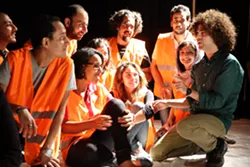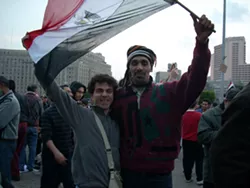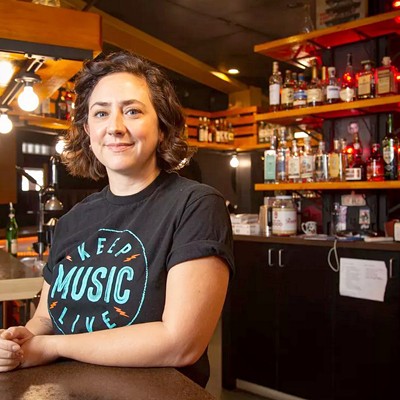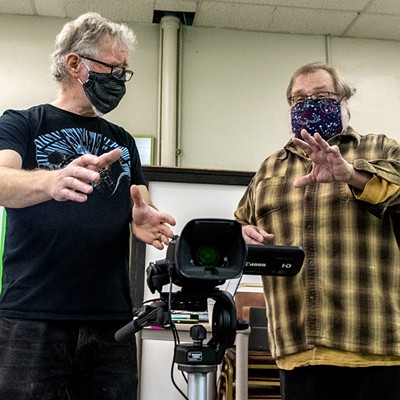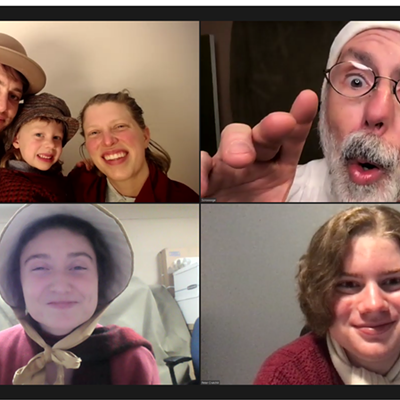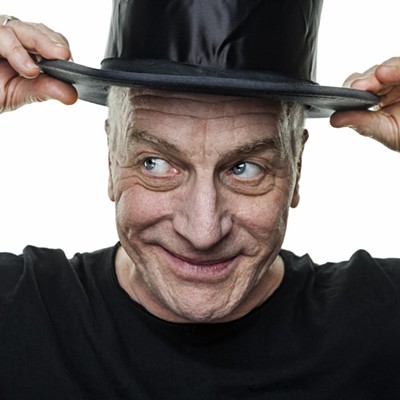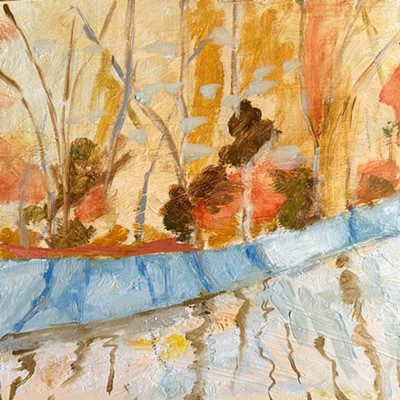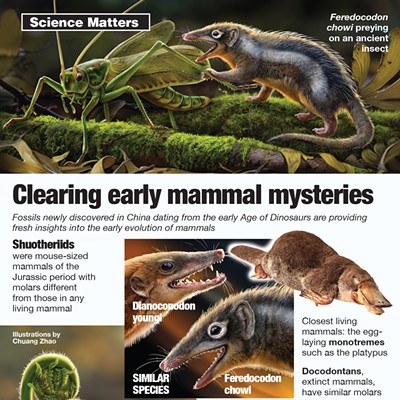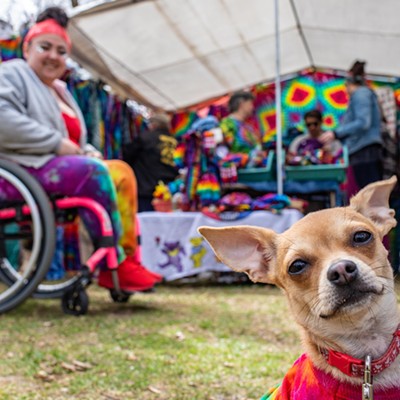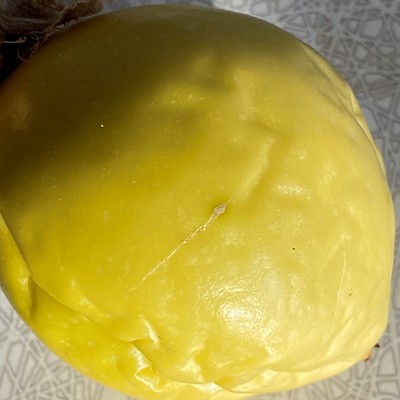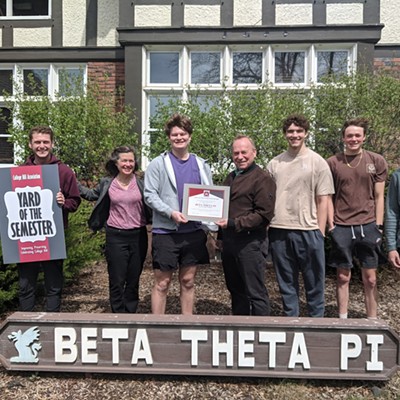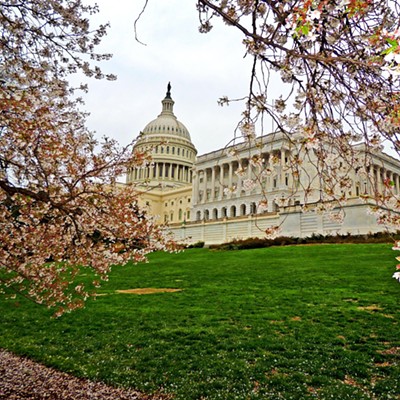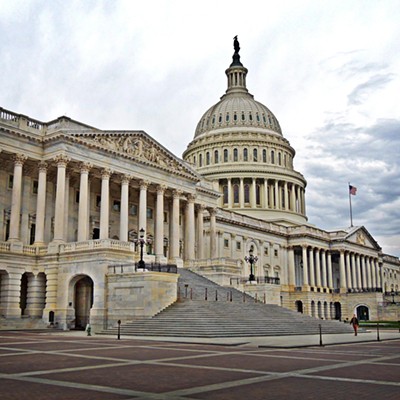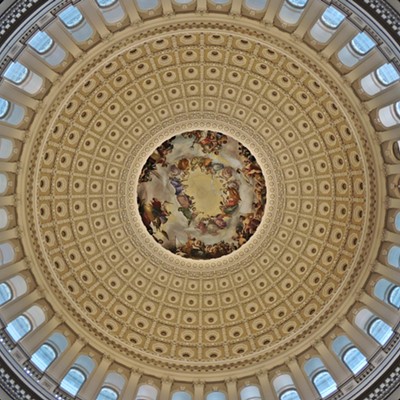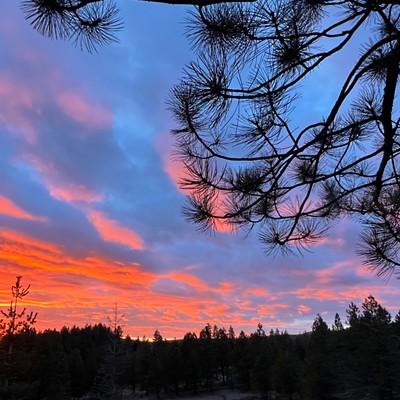It wasn’t all that long ago that Marco Magoa was working and studying abroad in Syria, living with a family in a neighborhood that echoed with the shouts and laughter of children.
Those joyful memories have since turned to haunting questions about whether those kids are still alive and where they might be.
Syria’s civil war has claimed thousands of lives and marred countless dreams of those seeking safety. This reality is taken up in “Mare Nostrum. Finis Somnia Vestra,” which means “Our sea. The end of your dreams.” Magoa presents the dramatic monologue Friday at the University of Idaho, preceded by a lecture today.
The presentation is a dialogue of sorts that allows the audience to travel to the other side of the world. It mimics the conversations that take place daily between people living on the Mediterranean and refugees who have been rescued from sea and brought to shore. It also reflects the private moments Magoa has had with those living in refugee camps, where people shared their memories and pain.
Because the presentation includes photos and video of Magoa on the street in Arab cities and in the refugee camp, the experience feels so real, audience members often believe Magoa is telling his own story.
But Magoa is not Syrian; he was born in Spain. His grandfather was a doctor who often traveled to Morocco -- it was there that Magoa encountered the Muslim culture and decided to learn the Arabic language. He eventually ended up in Syria for a time, where he worked in theater and took language classes in the evening.
In many ways, he said, the people in Syria were much like those at home in Spain.
“We both talk too much, we move our hands, we make a lot of noise,” Magoa said in a recent phone interview from New York, where he is doing an off-Broadway presentation of the show.
During his time in Syria, he could sense the pressure of the existing regime -- secret police were everywhere and people didn’t dare speak against the government in public. But otherwise, it -- like the other Arabic countries in which he has spent time -- was a good place to be.
“The people are really open to learning from others and are open to the world. They need us and they know that, they don’t have bad energy against us,” Magoa said.
The Arabic people are helpful, he said, and he’s never afraid to walk at night in places like Cairo because a person would never be robbed. Arab people love jokes and laughter, he said, adding that he believes Egyptians have the best sense of humor on the planet. These things are especially true of the younger generation.
Through this experience, Magoa sought to serve as a cultural ambassador of sorts between Spain and the Arab world. When the revolution began in Egypt, he decided that’s where he needed to be.
“Crisis is an opportunity,” he said. “I decided to leave everything behind and live in Egypt for a year.”
Much of Magoa’s work has been through theater. Friday’s monologue is the third part of a trilogy that explores the Syrian crisis. Parts of the trilogy have been performed in several countries, including Jordan, Egypt, Spain, Tunis and Denmark since 2015. The second part of the trilogy that was to have been performed at the Royal Theater in Cairo was suddenly cancelled over concerns about its political content, and he had to find another venue.
Magoa has also hosted theater workshops for kids in refugee camps. He spent time in Zaatari, a Syrian refugee camp located in the desert in Jordan. Jordan is especially welcoming of refugees, Magoa said, with around half a million refugees. He believes this is largely because many who live there are refugees themselves, from Palestine. It is a poor country, but they empathize and offer shelter because they were in the same situation not long ago.
“They know once Syria has recovered, they will return home,” Magoa said.
Other countries have not been so welcoming, Magoa said. He is quick to criticize Spain for promising to accept refugees and then failing to do so. Fears of refugees stealing jobs is unfounded, he said, because they will do the work others don’t want to do. In the end, it’s about creating safe places for people to live their lives and pursue their dreams.
“If you don’t want people to come to your country then do something to help their country be safe,” Magoa said.
IF YOU GO:
WHAT: “Mare Nostrum. Finis Somnia Vestra” (Our sea. The end of your dreams.)
WHEN: 7:30 p.m. Friday
WHERE: Hartung Theater, 625 Stadium Drive, Moscow
COST: Free; tickets are available at BookPeople of Moscow and at the door an hour before curtain, while supplies last
OF NOTE: Marco Magoa will be hosting a lecture 5 p.m. Thursday in the Vandal Ballroom on the University of Idaho Campus, Moscow; admission is free.
Syrian refugee crisis in a nutshell
Syria, a Middle-Eastern country the size of Washington, has been in a civil war since 2011, with four major groups vying for power. The effect of this war on its population has been tremendous. It’s estimated that around five million Syrians have fled the country -- many via the Mediterranean Sea, as portrayed in “Mare Nostrum. Finis Somnia Vestra.” Around 6.5 million are currently displaced within the country, which is yet unsafe and unstable. It is described by Mercy Corp as “the worst humanitarian crisis of our time.”
Q&A with Marco Magoa
Can you describe what the play is about?
Magoa: This plays talks about the terrible Syrian war. At the beginning, when I started to write this play, I wanted to do a more political play, but it soon became a love story, a love story with a terrible present and uncertain future. It´s a play about love -- love for our parents, for our friends, our landscape. It's also about the romantic love. All of these things are destroyed by war.
And how is that love story told?
Magoa: Through Mahmoud´s words and memories we will be able to be in Syria during the war, we will escape from there, leaving our old relatives behind, we will stay for years at the refugee camp, until we escape again trying to reach the coast of Africa in order to take a ship to Europe.
What does your character miss most about his country?
Magoa: At the end when you have to leave your country, for any reason, you miss your people. You miss other things of course but your people, friends and family, are the landscape of who you are. You really abandon a part of yourself when you leave, a part that you will never recover and you have to learn to live without it.
Besides issues with refugees, you bring up the treatment of LGBT people in Syria and other Arabic countries. Why did you choose to do that?
Magoa: I tried to be very informed about the situation every single day. One day I discovered that ISIS-DAESH were throwing gays from the top of the buildings. It was then when I decided that Mahmoud was gay. I had already started to write the monologue so it is something that appears in the middle of the play. I like that. Our sexuality is just another part of ourselves, not something that has be known or presented from the very beginning.
What was it like at the refugee camp you visited?
Magoa: I have had the opportunity to visit the biggest refugee camp for Syrians in the desert of Jordan. It´s called Zaatari camp, a terrible place where time and reality, it´s frozen and paralyzed for thousands of people. I talked a lot with the old ones about Syria -- the old people are the ones that needed to cry in secret with me. They know that they will die away from their land, but so close at the same time -- it’s just on the other side of the border. They will never see their land again.
Tell us more about your theater work with young people in the Zaatari refugee camp.
Magoa: They love theater, I think it´s a way of escaping from reality sometimes. And other times it’s a good way to face their frustrations and pain. You can make something beautiful with your pain; it´s called art.
What are some of the misconceptions people have about refugees?
Magoa: A big part of our societies believe that people love to leave their countries and go to Europe or other places because it´s better. This is not correct at all. The people I know would like to stay in their country as we do. Their countries are beautiful, full of history and culture. They like their weather, their landscape, their food, their houses, their mountains, their sea, their friends.
How can we, here in rural Idaho and Washington, support those affected by the Syrian crisis?
Magoa: The best way to support refugees is understanding that our governments here and in Europe must face a change. We have to demand that our politicians have a mature, serious, realistic and responsible relationship with these countries. The rich Arab countries are in a political and social anarchy that is incompatible with the modern ages. They are rich and we treat them like spoiled kids that can do whatever they want. The result? We have it right here in front of our faces. It´s crucial to face this and change the way we deal with them.

